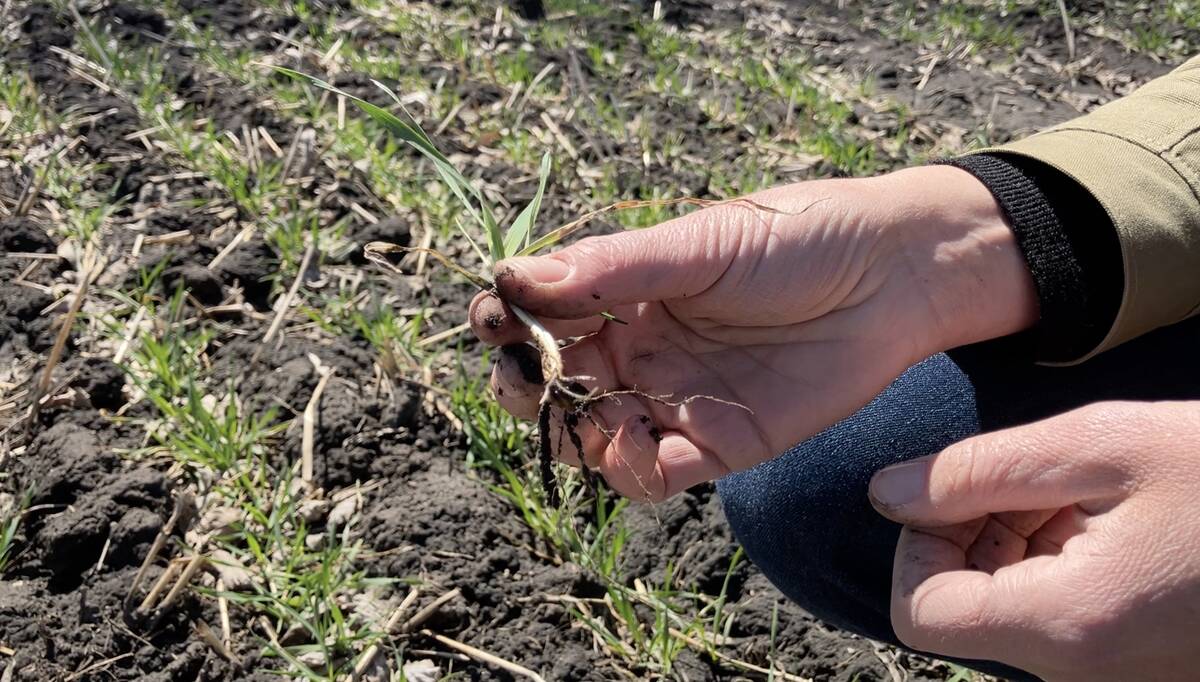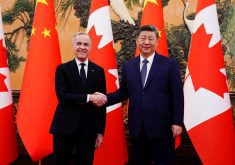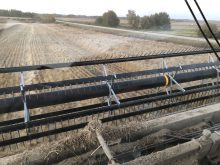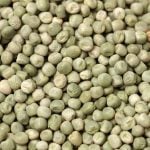Like many Canadians watching the pandemic protests unfold across the country, it’s taken me some time to sort out how I feel about it all.
Everyone loves a parade. No one likes the pandemic restrictions. We’d all like to be done with COVID-19. The question is, restrictions or not, whether it’s done with us.
As someone who works in the media, is focused on agriculture and who lives in rural Canada, it was seeing farm equipment showing up in the images that brought things into sharper focus.
Read Also

Canadian government got it wrong on public plant breeding
Cuts to Agriculture and AgriFood Canada will undermine Canadian agricultural productivity, says National Farmers’ Union member Dean Harder.
Don’t get me wrong. It’s a free country. Farmers have as much right as any citizen to express their opinion — as long as they abide by the laws that govern us all.
Their choice of vehicle on this one, however, gives me pause.
Of all subsets of Canadian society, farmers have fared better than most through the pandemic. Social distancing is naturally a part of their daily life. Last year’s disastrous drought, which had nothing to do with the pandemic, hurt yields and forced a cattle herd sell-off. But the crops they did harvest sold for record prices, which in some cases more than compensated for the drop in production.
Unlike front-line workers in food or health care, farmers, vaccinated or not, haven’t been singled out for extraordinary hardships due to the pandemic.
So why attend a protest in a tractor or plaster posters on the sides of a farm truck, which identifies you with agriculture? Do dental hygienists show up with their toothbrushes, or plumbers with a pipe wrench?
There’s no denying that rolling into town looking down on everyone from the cab is a show of power that won’t be easily forgotten by the people looking up.
However, and this is what should make their farming neighbours back home and farm organizations cringe, these images now shape how non-farmers perceive farmers.
Farm leaders legitimately expressed concerns early on in the debate over cross-border vaccination mandates out of fear that these might affect supply chains for farm goods and inputs. But since then, they’ve largely remained silent.
The trucking industry’s leadership has publicly distanced itself from the protests, indicating a high percentage of its workforce is already compliant with the mandate and it’s more than capable of transporting the necessary goods. Supply chain disruptions are more closely tied to whether the goods are available and whether drivers can get through the border blockades popping up across the country.
So what are these self-appointed ambassadors for farming and rural Canada supporting? The organizers’ demands are fluid but have included a call to dissolve the duly elected government and replace it with a coalition of opposition parties and unelected protest leaders.
The original manifesto also called upon the Governor General to certify that the COVID-19 vaccines don’t contain microchip trackers.
Honestly, if someone wanted to use microchips to track the activities of this particular population subset, they’d embed them in ivermectin — and then tell people not to drink the horse dewormer.
These protesters demonstrated this week they are not above using their children as shields against law enforcement. They are using the very culture of compassion afforded to us by our democracy as a weapon to erode and ultimately destroy it.
This is fighting for freedom?
Social media feeds from these groups say that journalists can’t be trusted and should be silenced — or worse — because the media receives subsidies.
They weren’t saying that when the media was reporting on the Prairie drought or B.C.’s floods. As for whether governments should be in the subsidy business, farmers might want to consider that one carefully too.
A lot of rural Canadians, including community leaders, appear to be going along with this because they don’t like the prime minister or the pandemic rules either, which is more insidious than the protests themselves.
Do we support the rule of law — or rule by mob? Do those with the biggest rigs or the loudest horns make the rules?
If this isn’t the image that farmers and their organizations want urbanites to see when they think of rural Canada and farming — it’s time for them to speak up.















